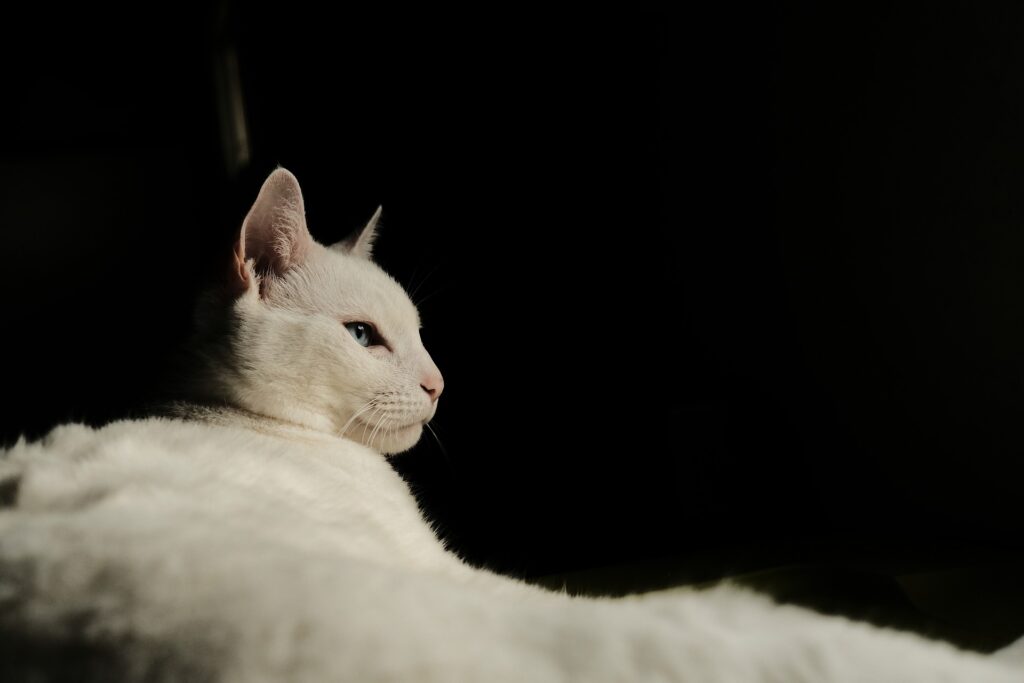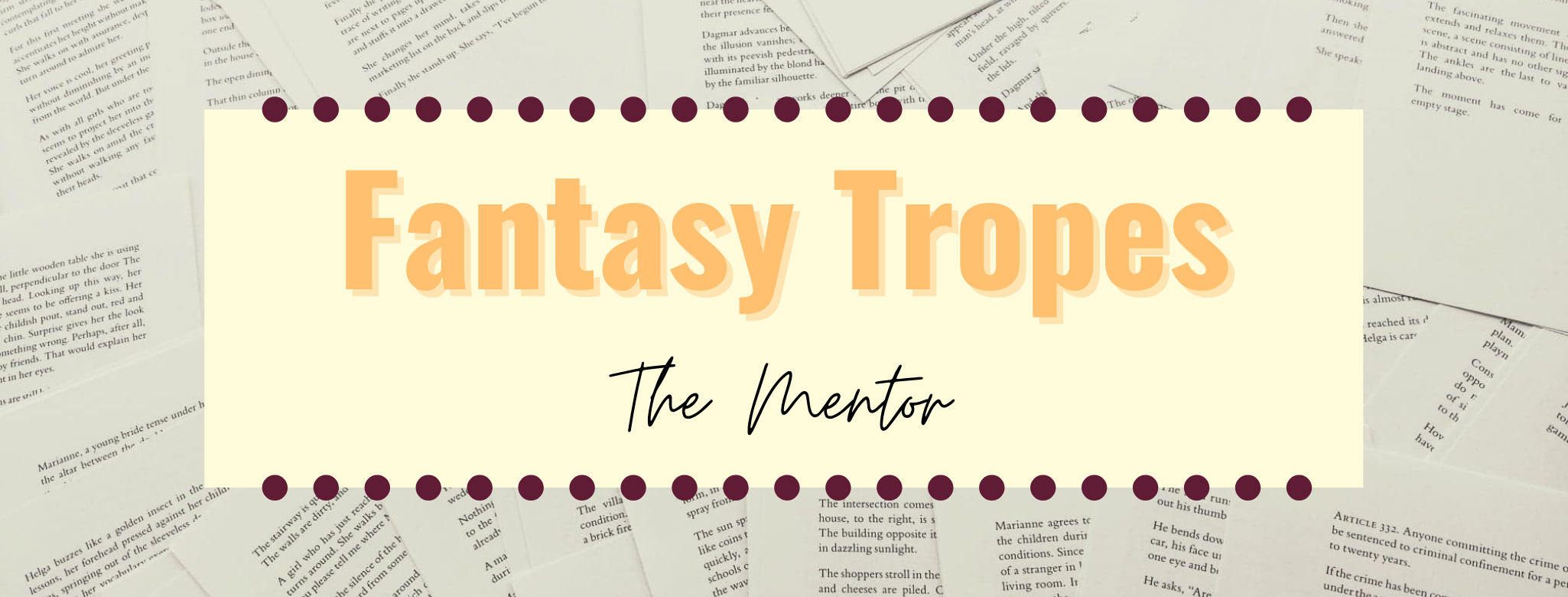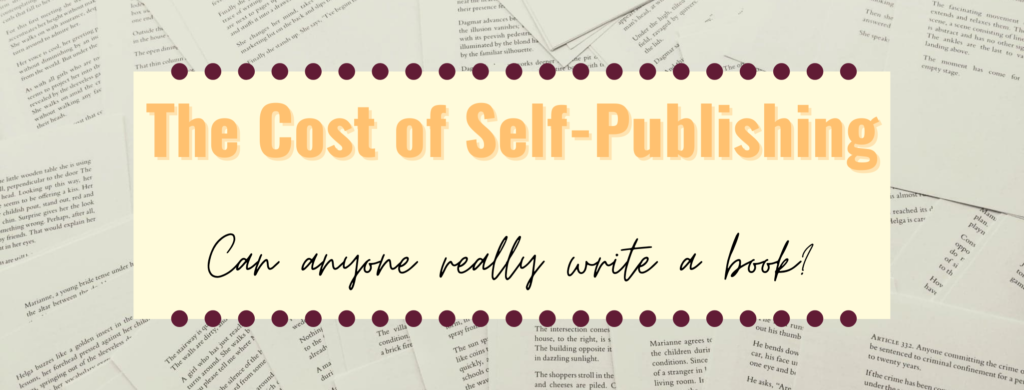It’s been a long time since I talked about fantasy tropes! So much of my life revolves around research right now – and my last few blog posts have reflected this – but research can be slow-going. While the process is necessary, it can feel like I’m circling around the same ideas endlessly, and so I feel like doing something lighter in this blog this week. Let’s talk about another classic fantasy trope: the mentor character.
What is the mentor character?
If we consider Lord of the Rings and The Hobbit as the grandfather-texts of modern fantasy, we can see the roots of the mentor character in Gandalf. Usually they are an older, wiser character who comes to explain the world to the hero/protagonist, or somehow ‘pass the torch’ to them. They have something to learn and the mentor facilitates that learning. Though they play an important part in the protagonist’s journey, the mentor is often somewhat distant as their purpose is to push the protagonist onwards instead of taking a direct or active role in the ultimate outcome of the story.
The classic mentor figure is the old bearded man who is, or at least appears to be, Good with a capital ‘G’. They are there to help the protagonist do what is right. Another common, but rather more interesting feature, is the Dark Truth that has pushed the mentor to help the protagonist. Dumbledore from the Harry Potter series, for example, fulfils all the expectations of the classic mentor figure as a fantasy trope: old, white beard, nudging Harry in the right direction from the distance of his office rather than immediately standing with him. But, as we learn in the seventh book, Dumbledore’s action against the antagonist, Voldemort, is at least partially inspired by his own failings in the past. He tries to help Harry learn that love is the true power because he once made the mistake of chasing magical power in the past.
Like any fantasy trope, the mentor character can be a great asset when used well. Be lazy with it though, and your reader will drown in info-dumping and hate this character’s intervening.
Pros
- If done well, can introduce the protagonist (and by extension the reader) to the fantasy world in a natural way.
- Can give your protagonist time to grow before directly facing the Big Bad.
- Is such a well-trodden trope that there are lots of ways to get inventive with.
Cons
- If they are too Good, the mentor can feel like the author’s tool to preach morals with.
- Difficult to balance – if your mentor is too involved in the story, they take power away from the protagonist’s journey. Too absent, however, and any intervention from them can feel false.
- Certain kinds of mentor (old white man) are so overdone that it’s hard to feel original with them.
Fantasy Trope Favourites: The Mentor
If we’re talking about the mentor as a fantasy trope, it’s helpful to consider examples. What did they do well? What can you, as a writer or reader, take from this? These may not be my favourite ever mentor characters, but their demonstration of the trope is fun to pick apart.
Brom – Eragon (Christopher Paolini)
While Eragon is pretty much fantasy paint-by-numbers, it provides many great examples of fantasy tropes done well. Brom, as mentor, is no exception. We first meet him as an old bearded storyteller giving us some worldbuilding lore. When the protagonist, Eragon, is forced to flee his home to save his newly hatched dragon from the evil king’s servants, Brom joins them and begins teaching Eragon magic and the history of dragon riders. Naturally, he is soon killed off so that Eragon can learn to stand on his own. In death, however, we learn more of Brom’s Dark Truth and the role this will play in Eragon’s future.
Brom is the perfect example of the classic mentor figure. He hides in plain site before revealing himself to the hero. He has more power and wisdom than the hero could hope for. And, despite the proximity of their early quest, Brom maintains a somewhat distant relationship with Eragon by clinging to his mentor role. He doesn’t let Eragon see who he really is. From an audience perspective, this serves the story well. In the first book, Brom is our guide to the world of Alagaësia as that’s what we need. His death takes the training wheels of Eragon and pushes him on to make his own decisions that will impact the story. In the latter books, however, we get more insight into the character and, with that more rewards for rereading.
+Classic mentor figure that serves the story well.
+ Adds reread value.
-Mostly interesting in hindsight.
Mogget/Yrael/Morgrim – The Old Kingdom Series (Garth Nix)
If you ever wondered what would happen if the mentor kind of hated – or at least resented- the protagonist, and also was a cat (sometimes), you should check out Mogget (who also goes by many other names). When Sabriel is forced on a quest into the Old Kingdom to save her father, she finds Mogget waiting for her full of snark and somewhat useful instruction. Bound to serve the Abhorsen line, Mogget is a reluctant but fascinating mentor. He provides details about the storyworld, but the fullness and trustworthiness of this is always questionable. Through him, Sabriel learns to use her own skills – quick thinking and bravery – to move forward in the world. His mentor role is less in subsequent books, but still Mogget demonstrates the knowledge and underlying threats possible in the Old Kingdom.

Mogget is not a typical mentor character. He’s not fully trustworthy and, if unbound, represents a real threat to the protagonist(s). But he is one of the clearest sources of magical learning and worldbuilding within the series. His distance from Sabriel is built through his personality and unwillingness to be too helpful, but this leaves her free to develop on her own even with him coming along on her journey. In later books, we could also consider the Disreputable Dog as a mentor character, but she and Mogget work very differently due to the different needs of their respective mentees. Sabriel needs to understand the world. Lireal needs to understand herself. The comparison only serves to enhance both mentor characters.
+Very different mentor figure, subverting the typical fantasy trope well.
+Snarky cat character. Need I say more?
-Less important in later books. His appearances start to feel more like fanservice.
Uncle Iroh – Avatar, the Last Airbender (Michael Dante DiMartino and Bryan Konietzko)
Rather than being attached to the ATLA hero, Aang, Iroh is the mentor to the antagonist-turned-ally, Zuko. Having been banished from his Fire Nation home, Prince Zuko wishes to restore his honour by capturing the avatar, Aang. His Uncle Iroh accompanies him on this quest but, rather than supporting Fire Nation values, gently guides Zuko to begin questioning them. Through Iroh’s teachings, Zuko becomes a better fire bender and eventually an ally to Aang and the gang. He even helps members of the gaang out at times.
Iroh is the epitome of the quiet mentor guide. He rarely tells Zuko what to do directly and instead nudges him in the right direction. While many mentor characters maintain emotional distance from their mentee, Iroh is both present and emotionally close to Zuko. Unlike Eragon, who needed to learn about the world, Zuko needs to learn about himself – to see the truth of who he really is – and Iroh’s steady support helps Zuko grow. Though he fulfils the old man part of the mentor fantasy trope well, the way he is used as a character makes him interesting. We get to know Iroh, and to understand how he got there, and this enhances Zuko’s character arc as well as his own.
+Unveils character truths.
+Badass but subtle in his tutelage.
-I have none. We love Iroh.
The Mentor Archetype in Shifting Sands
The mentor is such a useful character that I think it would be hard not to include them. In Shifting Sands, I would most strongly associate this role with Nayoub. When I created him, I wanted a character who fully believed what he was saying, but who wasn’t necessarily right. I didn’t want a mentor who was unquestioningly Good as that would defeat the point of the shifting perspectives. Most of all, I wanted a character that could stand up as a protagonist of their own story while also being a clear mentor figure for Aamarin. And honestly, he was really fun to write.
So, that’s it for the mentor fantasy trope. Who is your favourite mentor character? And writers, I’d love to hear about mentors you’ve written!



